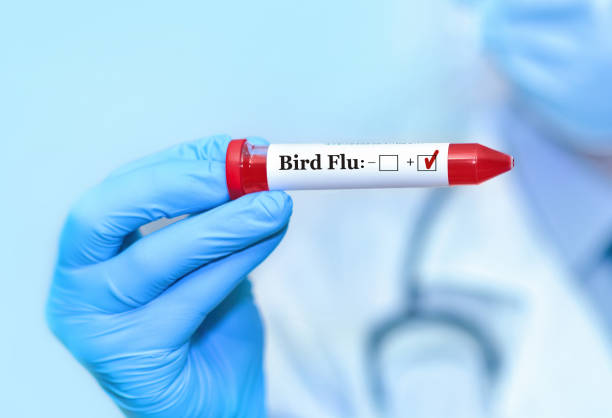The largest egg producer in the United States said Tuesday that it temporarily ceased operations at one of its Texas facilities after detecting bird flu in chickens — the latest in a steady uptick of cases among U.S. farm animals in recent weeks.
Cal-Maine Foods said it culled about 1.6 million hens and 337,000 pullets (young hens) after some of its chickens at a Parmer County, Texas, facility tested positive for highly pathogenic avian influenza (HPAI), caused by influenza A viruses that spread widely among wild and domestic birds.
A dairy worker in Texas was being treated for the virus that causes avian influenza, becoming only the second known human case in the United States, state and federal officials said Monday. The Centers for Disease Control and Prevention said the person tested positive for H5N1 bird flu.
The culled chickens at Cal-Maine Foods represent 3.6 percent of its flock as of March 2, it said. The company said “no farm is immune from HPAI” but added that it “remains dedicated to robust biosecurity programs across its locations.”
Minnesota officials reported the first infection of bird flu among livestock in the United States last month, when a juvenile goat living on a farm with infected chickens tested positive.
Last month, bird flu was also detected in dairy cows in Texas and Kansas. Later that week, U.S. officials said that cows in Michigan had tested positive and that there were presumptive positive tests among cows in Idaho and New Mexico, suggesting that the virus may be spreading among cattle.
On Tuesday, Michigan’s Department of Agriculture and Rural Development announced that bird flu was detected at a commercial poultry plant in Ionia County, “the fourth detection of HPAI in a commercial facility” since the virus was first spotted in the state in 2022.
The U.S. Department of Agriculture also said Tuesday that cases were detected in a dairy cow herd in Idaho.
Officials have said the risk to human health remains low. But the CDC has warned that people with unprotected exposure to infected birds or other animals, including livestock, are at greater risk of infection.
People should also avoid uncooked or undercooked food, unpasteurized milk and raw cheese, according to the CDC. Cooking eggs or poultry to an internal temperature of about 165 degrees Fahrenheit generally “kills bacteria and viruses, including bird flu viruses,” it says. Backyard chickens or pet chickens are at risk if they come in contact with wild birds carrying the virus.
Human symptoms of bird flu include eye redness, fever, coughing, sore throat, muscle or body aches, headaches, fatigue, shortness of breath or difficulty breathing. Diarrhea, nausea, vomiting or seizures are less common, the CDC said.












